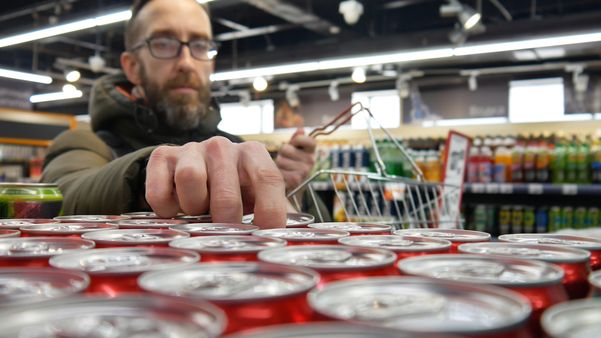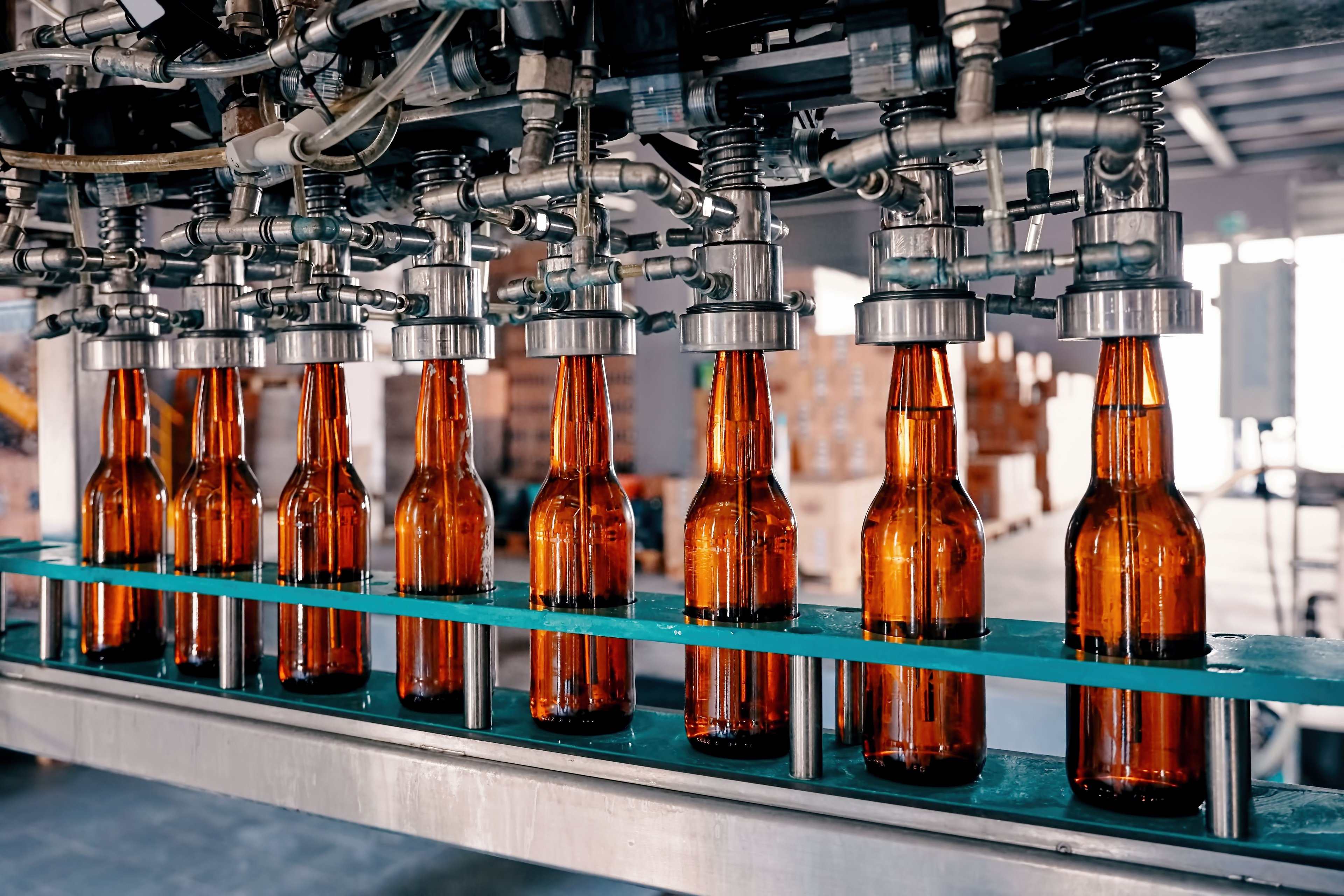Despite the protracted softening of the craft beer market, Boston Beer (SAM +5.00%) is combining two industry pioneers by merging with privately held Dogfish Head Craft Brewery in a $300 million deal. Although the pairing will be complementary, it is unlikely to change Boston Beer's declining beer fortunes.
Dogfish Head brings with it less than 300,000 barrels of production, an amount that makes it the 13th largest craft brewer in the country (and the 22d largest brewer overall). It only serves to further accentuate the hardships of Boston Beer's Samuel Adams brand, which is now into its fifth consecutive year of falling depletions, an industry proxy for consumer demand that measures sales from distributors to retailers.
Although the founders of the two breweries have similar ties to the industry, the question becomes: Is this a merger that would have been better completed years ago rather than now?

Boston Beer founder and chairman Jim Koch, left, and Dogfish Head founder Sam Calagione raise a toast. Image source: Boston Beer.
A continuing slowdown
The decline of the Samuel Adams label has largely mirrored that of the industry at large, as drinkers moved away from mass-produced beer and either embraced smaller, more local craft brews or switched to other alcoholic beverages like spirits and wine.
The biggest growth craft beer is seeing comes from microbreweries. The industry trade group Brewers Association says the 50 fastest growing breweries last year experienced median growth of 163%, but they produced an average of just 1,350 barrels, the total of which represents approximately 10% of craft beer's total growth by volume.
In contrast, Boston Beer produced about 4.3 million barrels last year, or around 8% of the craft beer industry's production. Yet the brewer's gains have come from everything but beer, such as its hard teas, hard cider, and more recently hard seltzer, which is turning into a growth category all its own.
Beer for athletes
Although Dogfish Head is seeing some exceptional growth with a few of its beer labels, it's not going to be enough to offset the decline in Samuel Adams. The industry watchers at IRI said Dogfish Head enjoyed significant growth at off-premise locations, like package goods stores, seeing 11% growth in 2018, while Samuel Adams dropped 8%.
Yet both are in pursuit of health-conscious beer drinkers, a trend that is reviving certain styles of beer, such as gose (pronounced "go-suh"), which is a sour brew made with saltwater, along with other low-alcohol beer and beverages.
Boston Beer, for example, has a kombucha and a new hard tea with fewer calories and less sugar. Dogfish Head has Slightly Mighty IPA, with 4% alcohol by volume (ABV); Namaste White, a Belgian-style white ale that was first released in 2009, but whose 4.8% ABV has recently regained popularity (it grew 9.5% last year); and SeaQuench Ale, a 4.9% ABV beer made with sea salt that saw sales nearly double year over year.
Not your father's brewer anymore
The deal is expected to close late in the second quarter, and Dogfish Head founder Sam Calagione and his family will receive stock in Boston Beer as compensation, approximately 406,000 shares at a price of $314.60 each. Dogfish Head shareholders will also receive $173 million in cash. Calagione will still run the brewery and will be appointed to Boston Beer's board of directors.
We should see more such beverages hit the market as Jim Koch said of the merger, "This combination is the right fit as both Boston Beer and Dogfish Head have a passion for brewing and innovation, we share the same values, and we will learn a lot from each other as we continue to invest in the high-end beer category."
The deal doesn't necessarily hurt Boston Beer, and brings with it some popular labels that can use the brewer's distribution network to grow further. But it doesn't help, either, as it's not transformative enough to overcome the craft beer industry's secular decline.






